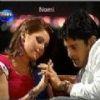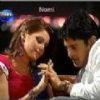Hello Everyone,
Mahabharat is the greatest epic of Vedic Literature. While reading the translated version, I found that within the main narrative, we are introduced to many great sages and everyone of them imparts their valuable wisdom to the Pandavas or Kauravas or to the other characters of the main narrative in the form of short stories. And all those short stories are just amazing to read.
So I am starting this new topic, where anyone can discuss about any of such stories and other folklores or short stories based on Mahabharat or Ramayan or any other epic as you wish. I hope you all to be participative. You can share any story you want, no matter how short it is.
Here I am taking the initiative:
Story of Nahusha
The story refers to the time when Rishi Dadhichi had sacrificed his body so that a special weapon can be made out of his bones, which can help in slaying Vritrasura. Vritrasura had the boon that no weapon, known till then would kill him. He could not be killed by any metal or woood or anything wet or dry. Therefore, a new weapon was made out of Rishi Dadhichi's bones . This weapon later came to be known as the famous Vajra of Lord Indra.
On Lord Indra's request, Rishi Dadhichi had sacrificed himself, so in one way Lord Indra found himself to be the cause of Rishi Dadhichi's death. Hence, abandoning his kingdom, he went away to perform penance for his sin.
Since it was not appropriate to leave the throne of Heaven idle, others started looking for a person, who could act as proxy ruler. Then someone suggested about the great king of Lunar Dynasty Nahusha. Nahusha was the son-in-law of Lord Shiva as he got married to Devi Ashok Sundari, daughter of Mata Parvati and Shiva. So when the Gods reached Nahusha with the proposal, Nahusha immediately accepted the offer and then he came to Heaven.
The things went quite smoothly for sometime, then as time passed, Nahusha's pride started increasing. One day, he went to Devi Shachi, the wife of Lord Indra, and breaking all the limits of decency, asked her to marry him and accept him as her husband. Devi Shachi at first politely refused. But when Nahusha kept stalking her and disturbing and harassing her, she went to Devguru Brihaspati, to ask for a remedy to her problem.
Devguru Brihaspati advised her, that until and unless Nahusha is dethroned from Indrasen, there was no remedy to her problem. So they should device a plan so that Nahusha would appear to be in fault, then only he can be dethroned.
So next day, as per Devguru Brihaspati's plan, when Nahusha again came to ask to Devi Shachi to marry him, Devi Shachi agreed to marry Nahusha, but on the condition that Nahusha should come to her in a palanquin which shall be carried by all greatest sages, ever born on earth.
Nahusha, blinded by his pride, accepted Devi Shachi's condition. Very soon he convinced all the sages to carry his palanquin. On the fixed day, Nahusha, mounting on his palanquin, started off with his journey to Devi Shachi's palace. Nahusha was so eager to meet Devi Shachi, that time and again, he kept on telling off the sages to increase their pace. The sages had grown old, so they could not walk faster. Frustrated with this, Nahusha, arrogantly gave a hard kick to one of the sages.
That sage was none other that Rishi Agastya, son of one of the Saptarishi Pulastya. Rishi Agastya was extremely enraged. He got up and roaringly said to Nahusha, "YOU ARROGANT FOOL! How dare you kick me. You are neither fit to rule this Heaven nor you are fit to rule anywhere for you lack humility. So, I curse you, that from this moment, you will lose your human form, and shall live on Earth as a Giant Serpent until you learn humility."
Nahusha got extremely scared. He immediately fell at the sages feet and kept asking for forgiveness. The angry sage, softened a bit, and said that some day, his descendent, Samrat Yudhishthira would come to him and would answer his questions and teach him humility. Then he shall be free from his curse.
Eons later, during the Pandava's exile, one day a huge serpent caught Bheem in its clutches to feed on him. Noticing Bheem's absence for a long, Yudhishthira reached there and as predicted by Rishi Agastya, he answered all the questions of that serpent, who was Nahusha. Despite knowing all the answers to the questions of Nahusha, Yudhishthira did not have even a slight hint of arrogance in his tone. Nahusha, realized what Rishi Agastya had wanted to teach him. And the precise moment, his serpent form dissolved and he got back his human form. Thus blessing the Pandavas for their victory, he went back to heaven.
~~~~*****~~~~
Hope you like the story. Here I have tagged just a few members whom I have communicated on this forum, to encourage you all to participate.














comment:
p_commentcount